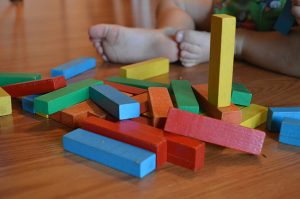Preparing Washington for the effects of COVID-19
Washington state is experiencing an increase in cases of the coronavirus (COVID-19) and it is anticipated that the virus will continue to spread. There have been several deaths. However, I want to make sure you have the facts and understand the basics on how to stay healthy.
First, health officials are working rapidly to identify and test people who may have been exposed. Public health officials in our state have experience responding to pandemics and are working with state and county health officials to share information, deploy resources, and respond at maximum capacity.
Second, currently the risk to the general public is low due to the unlikelihood of exposure to the virus. Risk of exposure is elevated for healthcare workers, people who have had close contact with persons with COVID-19, and travelers returning from affected international locations (China, Iran, South Korea, Italy, Japan, and Hong Kong).
Third, these are the recommendations from the Washington State Department of Health on how to respond in your daily life:
- Wash your hands often and avoid touching your face.
- Stay home when you’re sick.
- If you are sick and wondering what to do, call your healthcare provider before you go to a clinic or emergency room.
- Show compassion and support for individuals and communities most closely impacted and anyone who might be sick.
- Get prepared in case for a COVID-19 outbreak in your community. We have resources at https://www.doh.wa.gov/Emergencies/Coronavirus#beprepared.
If you have questions, you can call the Washington State Department of Health at 1-800-525-0127 and press #.
You can also stay up to date by following them online at the various websites and social media channels below:
Website: https://www.doh.wa.gov/Emergencies/Coronavirus
Facebook: https://www.facebook.com/WADeptHealth
Twitter: https://twitter.com/WADeptHealth
How Can I be Prepared?
What we are doing in the Legislature
In the Legislature, my colleagues Rep. Cody and Rep. Schmick, the health care leads in the House, have offered a bill to transfer $50 million to get state agencies and local governments the necessary funding to respond to COVID-19. It also will give the Department of Social and Health Services funding to increase nursing staff to help address this growing need. We’ll continue to work with DOH, DSHS, and other state agencies to identify what the Legislature can do to ensure we have the necessary resources.
We are all in this together. Please make sure to follow the DOH recommendations to keep yourself healthy and keep up on latest information via the social media channels above. I’ll keep you updated on the status of our efforts in the Legislature to respond.
Housing, child care, health care: Supplemental budget focuses on state’s greatest needs
In even-numbered years like this one, the legislature makes corrections and adjustments to the two-year state budget passed in odd-numbered years. Investments made in these supplemental budget years are generally more modest yet are important to ensuring the most critical needs across our state are addressed.
This week, the House rolled out its 2020 supplemental operating budget. It makes use of our state’s positive economic forecast to invest in affordable housing and reducing homelessness, affordability of child care, and health care access. These are priorities House Democrats identified at the beginning of the session, because families, businesses, and communities in Washington need help right now.
One of the biggest investments is a $100 million transfer from the state’s General Fund to the Housing Trust Fund, which will go toward new affordable housing projects, homeless shelters, and programs that maintain affordable housing stock and provide housing stability for those most at risk of homelessness. In short, these investments will put and keep roofs over people’s heads.
Investments in child care include more funding to help families with low incomes pay for child care, and ensuring we maintain access to subsidized pre-school slots for three- and four-year-olds most at risk of not being kindergarten-ready.
Health care investments are targeted toward the people and families most in need, including increased Medicaid rates for primary care and nursing homes, more support for rural health clinics, and investments in public health, including more funding for the state’s response to coronavirus.
The proposal assumes no new taxes or fund transfers. A public hearing on the bill took place on Monday, February 24, and the full House is slated to vote on it on Friday, February 28.
That won’t be the last step, however. The Senate has its own budget proposal, and House and Senate budget negotiators will be working together to come up with a final, compromise supplemental budget to be voted on by both chambers before the 2020 session adjourns on March 12.
I’m committed to fighting for a supplemental budget that continues our commitment to putting people first.
Meeting students’ needs with the House Democrats’ budget
 We know that students face challenges outside of school that impact their academic performance. Whether a student is facing homelessness, can’t concentrate because of hunger, or is struggling in social interactions with their peers, schools need to provide supports that enable their students to focus on learning.
We know that students face challenges outside of school that impact their academic performance. Whether a student is facing homelessness, can’t concentrate because of hunger, or is struggling in social interactions with their peers, schools need to provide supports that enable their students to focus on learning.
That’s why the House Democrats’ budget makes investments in students health and safety, including $51 million for counselors in high poverty schools, $3.5 million to improve the newly established Regional School Safety Centers, and $1.7 million for nurses in small and rural districts. The budget also includes $17 million to provide comprehensive training for paraeducators that will help these educators assist some of our most vulnerable students, including student with special needs and English language learners.
Our kids are our future. These investments outside of the classroom will help build the foundation for success inside of the classroom.
It is an honor to represent you. Please don’t hesitate to contact me with your questions, comments or concerns.

Rep. My-Linh Thai
